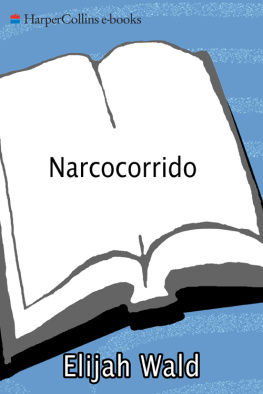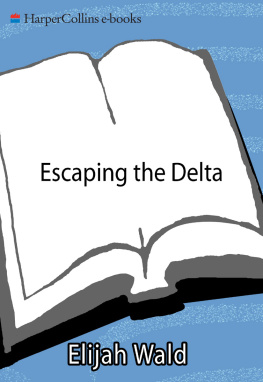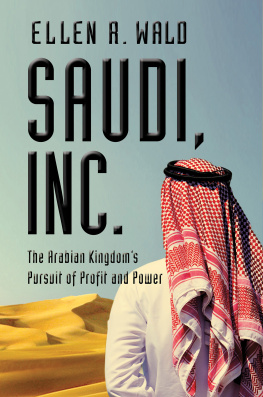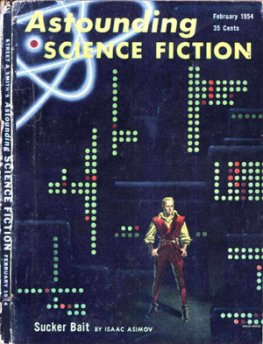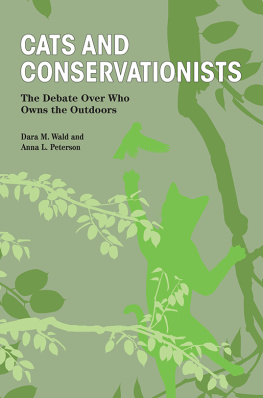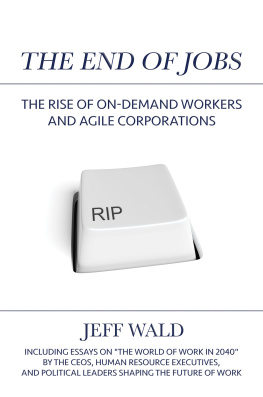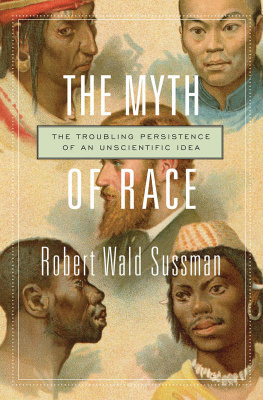Wald - American Night: The Literary Left in the Era of the Cold War
Here you can read online Wald - American Night: The Literary Left in the Era of the Cold War full text of the book (entire story) in english for free. Download pdf and epub, get meaning, cover and reviews about this ebook. City: Chapel Hill, year: 2014;2010, publisher: The University of North Carolina Press, genre: Politics. Description of the work, (preface) as well as reviews are available. Best literature library LitArk.com created for fans of good reading and offers a wide selection of genres:
Romance novel
Science fiction
Adventure
Detective
Science
History
Home and family
Prose
Art
Politics
Computer
Non-fiction
Religion
Business
Children
Humor
Choose a favorite category and find really read worthwhile books. Enjoy immersion in the world of imagination, feel the emotions of the characters or learn something new for yourself, make an fascinating discovery.

American Night: The Literary Left in the Era of the Cold War: summary, description and annotation
We offer to read an annotation, description, summary or preface (depends on what the author of the book "American Night: The Literary Left in the Era of the Cold War" wrote himself). If you haven't found the necessary information about the book — write in the comments, we will try to find it.
American Night: The Literary Left in the Era of the Cold War — read online for free the complete book (whole text) full work
Below is the text of the book, divided by pages. System saving the place of the last page read, allows you to conveniently read the book "American Night: The Literary Left in the Era of the Cold War" online for free, without having to search again every time where you left off. Put a bookmark, and you can go to the page where you finished reading at any time.
Font size:
Interval:
Bookmark:
AMERICAN NIGHT
Publication of this book was supported in part by a generous gift from Ruth and Tom Green.
2012 The University of North Carolina Press
All rights reserved
Designed by Jacquline Johnson
Set in Minion Pro
by Tseng Information Systems, Inc.
Manufactured in the United States of America
The paper in this book meets the guidelines for permanence and durability of the Committee on Production Guidelines for Book Longevity of the Council on Library Resources.
The University of North Carolina Press has been a member of the Green Press Initiative since 2003.
Library of Congress Cataloging-in-Publication Data
Wald, Alan M., 1946
American night : the literary left in the era of the Cold War /
Alan M. Wald.
p. cm.
Includes bibliographical references and index.
ISBN 978-0-8078-3586-9 (cloth : alk. paper)
1. American literature20th centuryHistory and criticism.
2. Communism and literatureUnited StatesHistory20th
century. 3. Socialism and literatureUnited StatesHistory
20th century. 4. Right and left (Political science) in literature.
I. Title.
PS228.C6W34 2012
810.9358dc23
2012012540
A portion of chapter 4 originally appeared as The Great Outsider: On the Centennial of Richard Wright, 19081960, Against the Current 138 (JanuaryFebruary 2009): 1519. Used with permission.
16 15 14 13 12 5 4 3 2 1
TO ANGELA
A glistening emerald drop hangs from the end of a straight stem.
BORIS PASTERNAK
Blacklisted by trade unions we once had suffered to build, Shot down under a bust of Plato by HUAC and AAUP. Perhaps the commune must fail in the filth of the American
night
Fail for a time...
But all time is redeemed by the single man
Who remembers and resurrects.
And I remember.
I keep
The winter count.
THOMAS MCGRATH, Letter to an Imaginary Friend, 1962
Fog over the river, fog over Dock Street, the street that ran alongside the river. He heard the chug-chug of Jubines motor-cycle, way down on Franklin Avenue, going slowly, visualized him, head bent forward, peering, trying to see both sides of the street at once for fear hed miss something...
ANN PETRY, The Narrows, 1953
May the passion, the experience, and even the faults of my fighting generation have some small power to illumine the way forward.
VICTOR SERGE, Memoirs of a Revolutionary, 1963
(written 1943)
Howard Fast
Kenneth Fearing
Budd Schulberg
Samuel Sillen
Charles Humboldt
Dr. Annette T. Rubinstein
Sam Ross
Lloyd Brown
James Neugass
Alexander Saxton
Vera Caspary
Lillian Barnard Gilkes
Naomi Replansky
Rebecca Pitts
Henry Wadsworth Longfellow Dana
Richard Wright
Ann Petry
Harry Slochower
Willard Motley
Abraham Polonsky
Katya and Bert Gilden
Aaron Kramer
Thomas McGrath
Gene Frumkin and Alvaro Cardona-Hine
Walter Lowenfels (1)
Walter Lowenfels (2)
Sarah Wright and Lucy Smith
David McElvey White
Don Gordon
Carlos Bulosan
Earl Conrad
Milton Meltzer
Ira Wallach
Edward Newhouse
The ingenuity of literary history does not belong to documents but to the queries posed: To what extent is a Communist presence to be found in the mainstream as well as in the tributaries of U.S. letters after the mid-1940s? What are the criteria for measuring the magnitude and merit of this presence? Does this literature speak to us any longer? In the political culture of the era, is the designation Progressive simply a code word for Communist? And when and how did it become so tricky to say for sure what political terms such as Communist and Progressive really meant? Although events of the past have never been so contested as they are about the Cold War and political amnesia is habitually deplored by critics of contemporary society, extant literary histories are oblique about such large-bore issues. The answers to these questions require detective work like that of a picture restorer with a badly damaged canvas. What we have at the moment is principally the mute present of a deficient postwar archaeological dig.
American Night: The Literary Left in the Era of the Cold War is the finale of a trilogy written in hot pursuit of the eternally elusive black box of truth about the passage of writers in the United States through the most violent and repressive three decades of the mid-twentieth century. Exiles from a Future Time: The Forging of the Mid-Twentieth-Century Literary Left (2002) probed the paradoxes of art consecrated to Marxist political commitment in the early years of the Great Depression. Trinity of Passion: The Literary Left and the Antifascist Crusade (2007) chronicled the careers of those who devoted their resourcesphysically, emotionally, and creativelyto combating fascism in Spain and on the domestic and other international fronts of World War II. This volume turns to the lives and works of writers grounded in the sensational events of the transition from postwar to the McCarthy era.
Between 1945 and the late 1950s, the socialist vision fashioned in the 1930s
In the late 1940s, Communism was successfully established as a trigger word by its opponents, who fired off rounds to hit people with the labels of disloyalty and deceit. Such inflammatory characterizations of individuals in the vanguard of racial justice, working-class organization, and anticolonialism pushed the potential targets among writers toward hasty self-editing of political autobiographies and slippery disclaimers of affiliation. Forgetting was necessary. Due to the absence of an open space for candid political discussion, many of the unknowns of Communist identity have been preserved as if in amber. Sixty-five years later, even the language used by the literary Left comes across as a reified procession of terms and phrases uprooted from contexts, shards of thought uncoupled from the past that constituted meaning.
To speak to this wrenching episode, American Night, a work of social literary history, brings into play a conceptual frame proposing imaginative literature as a communal autobiography of several generations of writers committed to the 1930s vision of advancing a new society. The vision reformulated national patriotism into world citizenship and demanded an economy democratically controlled by the producers.
Into this mix came Soviet Communism, a Janus-faced juggernaut that heroically fought against fascism and colonialism while defending a police state. In the associative mental architecture of the Communist movement, this meant that the worthy vision of the 1930s became synonymous with the safekeeping of an egregiously idealized Soviet Union. The moral hazards of such a false positive were harvested as Communist took on a compound meaning, one that embodied a simultaneity of paradoxical experiences, a beguiling alloy of sacrifice and delusion, humanitarian ideals, and ruthless realpolitik.
The writers treated in American Night are mostly gifted and dedicated to humane politics, but Communism always had many faces. Wherever one was caught up in a moral certainty about a state regime, East or West, there were certain circles of hell that could not be squared. Some intelligent and honest individuals even traveled about the Soviet Union and returned to write true reports of the untruth that they lived.
The nationalization of the Soviet economy and the anti-imperialism of its foreign policy beget an amalgam of benefits and shams still in dispute. I personally believe that, early on, the movement known as Stalinism lost the moral compass and quality of critical reason necessary to socialism. Yet the story told of writers in
Next pageFont size:
Interval:
Bookmark:
Similar books «American Night: The Literary Left in the Era of the Cold War»
Look at similar books to American Night: The Literary Left in the Era of the Cold War. We have selected literature similar in name and meaning in the hope of providing readers with more options to find new, interesting, not yet read works.
Discussion, reviews of the book American Night: The Literary Left in the Era of the Cold War and just readers' own opinions. Leave your comments, write what you think about the work, its meaning or the main characters. Specify what exactly you liked and what you didn't like, and why you think so.

